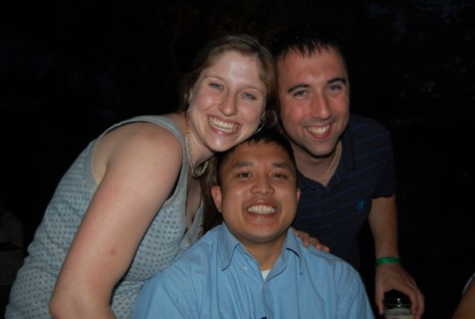As election approaches, social media sites become more influential
Published Nov 29, 2011
As the 2012 presidential elections quickly approach, social media has become an invaluable part of political campaigns for the university.
President Obama succeeded in his 2008 bid for the presidency because of his effective combination of both social media and mainstream campaign methods, Jim Riddlesperger, professor of political science, said. President Obama raised more money and gained more supporters than any other candidate before him, he said.
Candidates in the race for the Republican nomination are using social media to further their cause and popularity. According to gallup.com, Mitt Romney is currently the most popular Republican candidate.
As part of his campaign, Romney has decided to use social media. However, Romney and the Republican Party have fallen behind in their use of social media, Riddlesperger said.
“[Social media] is one of the reasons I think Barack Obama has resonated better with young voters than the messages of the Republicans,” he said.
Obama uses social media to stay in constant communication with his supporters.
Adam Schiffer, associate professor of political science, did a study on the trends of media coverage of Republican candidates that included the number of Facebook fans a candidate had. He had a database with the number of fans each Republican candidate has had over the entire year.
“It’s been interesting to watch,” Schiffer said. “When a candidate gets hot, suddenly they’ll have 5,000 or 10,000 fans per day, and when they don’t, that’ll cool off.”
His research showed Herman Cain has gained more fans since he has been in the spotlight for sexual harassment allegations.
As of Nov. 15, President Obama’s Facebook page had around 24 million “likes”; however, only about 300,000 people were actually talking about his bid for the presidency. The numbers on Romney’s page were staggered as well. Of his 1.1 million “likes”, only 57,000 people were registered as talking about him.
Taylor West, a sophomore political science major, said social media could be one of the best ways to attract attention to political affairs. In the future, voters would be more influenced by popular demand, he said. In his example, a voter could be swayed to vote for one candidate over another simply based on others’ opinion. Numbers such as those shown on Facebook might be a factor when voters choose a candidate.
Michael Millican, a sophomore political science major, said in order for students to become better informed about political matters, they should look at different points of view. “You need to look at the whole picture when you’re deciding a candidate,” he said.
Millican said he used The Washington Post, Politico, The New York Times, thehill.com, Cato Institute and other online media in order to keep updated on the latest political news.
Riddlesperger said the emergence of social media as a useful tool for political campaigning should not replace ordinary campaigns. Successful campaigning requires a mixture of the two, he said.
Both Schiffer and Riddlesperger agreed that politicians would continue to follow the trends of technology as they become available.
“If you’re not using social media, you’re not communicating, and communication is the first job of a politician,” Riddlesperger said.



